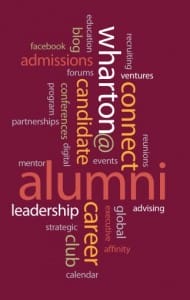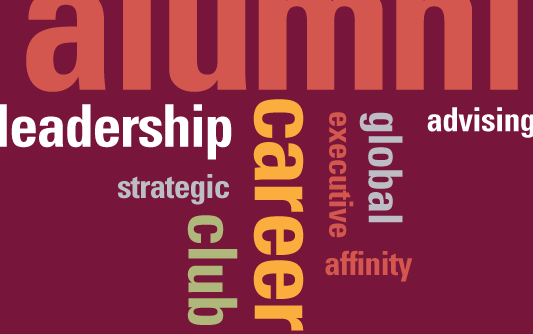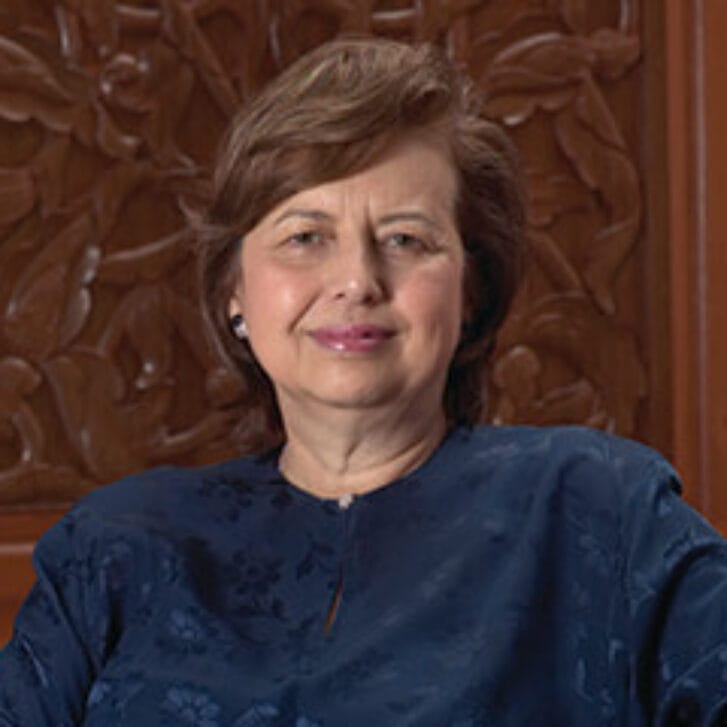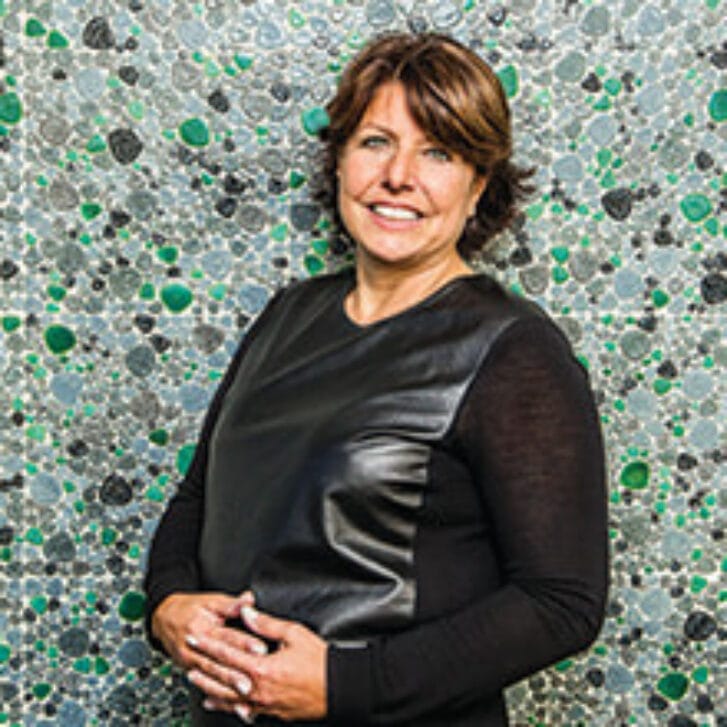 The Wharton network is one powerful tool among many that alumni can count on to aid them in personal or business pursuits.
The Wharton network is one powerful tool among many that alumni can count on to aid them in personal or business pursuits.
By Anne Freedman
Ruth Manfredi, WG’99, decided she wanted to save the village where her heart is. Some of the first people she contacted to help her were Wharton alumni. They responded with information, contacts, ideas and funds to help rebuild Vernazza, a “very small, sleepy village,” as she describes it in the Cinque Terre region on the Italian Riviera.
She met her husband in Vernazza in 1995. She married him there in 2001. And she lived there in the summers and on weekends—before torrential rains, massive flooding and mudslides from the surrounding mountains deposited nearly 15 feet of mud and debris in the medieval coastal town on Oct. 25, 2011, causing about $100 million in damages and killing three people.
Manfredi, a native of South Salem, NY, who now lives in La Spezia, about 20 minutes away from Vernazza, joined two other American women who have homes in Vernazza to create the nonprofit organization Save Vernazza. They reached out to friends, former tourists and those with connections to the town. They relayed the story of the disaster and began raising funds for reconstruction.
At the same time, Manfredi reached out to three members of her Wharton Learning Team—Evan Betzer, WG’99; Elena Lytkina, WG’99; and Bob Lach, WG’99—as well as another friend from Wharton, Lucy Carone Elliott, WG’99.
From them, she learned about fundraising. They helped her fine-tune ideas, set goals, and put her in touch with experts knowledgeable about setting up nonprofit organizations. She got advice, connections and donations, and the effort to rebuild Vernazza moved forward.
The Club Scene
The Wharton network is a powerful tool for alumni in so many different ways, but the School has other resources that alumni can count on to aid them in personal or business pursuits. These include online and offline networking tools, Lifelong Learning educational programming, career development tools and School communications.
One example of offline networking tools are the alumni clubs found in cities and countries around the world, including Italy, where Manfredi reached out to the Wharton Club of Italy. The response was more than gratifying, she says.
Maggie Dufresne, WG’86, a past president of the club, shared “fantastic ideas” about nonprofit structural issues and fundraising activities, Manfredi says.
“This is a perfect example of the Wharton network,” she says. “You call someone you have never met, and they respect the Wharton connection and totally help you out. I think that’s very powerful.”
Save Vernazza has raised about 115,000 euros from about 950 donors throughout the world, as well as gained publicity from such media as CBS News and the New York Times. Manfredi is currently working to create a U.S-based nonprofit and is also considering approaching Wharton to see if students may be interested in a group or individual project to assist with the reconstruction.
Underlying her efforts, Manfredi says, are the lessons she learned at Wharton: “I really do believe in the power to make a difference.”
Betzer, principal of Stoneworth Financial LLC, a boutique investment bank in Houston that focuses on mergers and acquisitions and corporate development, downplays the help he provided to Manfredi, but he doesn’t downplay the assistance that Wharton’s resources have offered him over the years.
“Part of the reason [students choose Wharton] is for this network,” he says. “I plug into the Wharton network constantly. When I reach a challenge on a deal, when I need outside thinking on the way to approach something, when I need a contact within a company, I just find it’s a tremendous resource for getting business done.”
He recalls one client—a Houston-based company in the energy industry—that had been approached by a European concern about acquiring it. The opportunity to leverage their capabilities internationally attracted the client, although that particular potential acquirer wasn’t an “ideal match,” he says.
“But through classmates and contacts here with the Wharton Club of Houston, I was able to introduce them to the biggest names in the management consulting industry,” he says.
Betzer was then able to get the Houston energy firm into acquisition discussions and solidify a strategic alliance.
A past president of the Wharton Club of Houston, Betzer cites another example of his local network in action. Recently, a board member with whom he previously served called him out of the blue with a reference.
“He wouldn’t be familiar with me if I hadn’t volunteered my time and he hadn’t volunteered his time and we worked together on the Wharton board,” Betzer says. “I am now working with the client he referred.”
“I have heard it said, ‘Before the age of 40, your success depends on what you know. After the age of 40, your success depends on who you know,’ ” he adds.
Mastering the Monsters of Career-Building
Pascale Nicolet, WG’94, took over the Wharton Club of Houston’s career-networking group in 2008. Since that time, it has grown from about five or six members to as many as 90. The club tries to limit attendance at the bi-monthly networking meetings to about a dozen, says Nicolet, a former McKinsey & Co. consultant who is now principal of TOPerformance, a Houston-based consultancy focusing on change management and organizational performance.
Attendees at the career-networking meetings, she says, are often Wharton alumni “in transition” or “at a crossroads.” They may be seeking new or better jobs, or may be consultants and entrepreneurs looking for business prospects and contacts.
“Networking puts you directly in contact with people who are in [targeted] corporations instead of trying to go through the human resource ‘black hole,’ as we call it,” she says.
The career-networking group members also offer coaching, feedback, career-development advice, resume-reviewing and contacts. Many members have found better jobs, according to Nicolet, and gone into business together.
That latter situation was the case when she matched Brian Swain, WG’91, with David Kroll, who graduated from Rice University.
The result of Swain and Kroll’s partnership is My Best Plan, which, Swain says, analyzes the “very byzantine pricing structure” of electric companies in Texas and provides clients with the most cost-effective options for electricity.
“As a general matter,” says Swain, who is now active in a combined Penn and Wharton group in San Antonio for business and social reasons, “the broader your network is, the better it is. And if the network is comprised of people you know or have a connection with from a School standpoint, so much the better.”
Nicolet has herself benefitted professionally from the networking group, with all of her business coming by way of it, mostly from Wharton alumni.
An example is one current project designed to streamline operations at Houston’s Housing and Community Development Department. That project came her way, she says, because she became acquainted with HCDD Director Jim Noteware, WG’76, at the group meetings and elsewhere.
Wharton-Level Stimulation
Betzer, who also serves as a member of the Wharton Alumni Executive Board, says he is a fan of the multimedia information available on Wharton’s website. Particularly, he recalls a video he watched when he was feeling “whipsawed by the market crash” in 2008, when he was feeling anxious to put the economic situation in context and be reassured that recovery would come eventually. Wharton’s website transported him to campus virtually and allowed him to plug into the intellectual stimulation that is common there. The “fascinating” video in question was of Russell E. Palmer Professor of Finance Jeremy Siegel talking about the financial situation and the reasons behind it.
Being able to access that “kind of intellectual foment” from anywhere in the world, he says, “is very valuable.”
He is equally enthusiastic about WhartonConnect and Wharton’s LinkedIn groups, which he uses to find new contacts, discuss potential deals and seek help with business problems.
Paul Lima, GEx’03, managing partner of Lima Consulting Group, shared his WhartonConnect-related success story.
The tale began when Lima, an adjunct member of the Wharton Alumni Executive Board, leveraged a marketing class at Wharton and asked the students to conduct a study to help him explore the possibility of expanding to Latin America. Based on that research, he decided to focus on the promotion of online marketing software to Brazilian financial services firms. Lima then “booted up” WhartonConnect and identified graduates in those industries, “who were happy to meet with me when I arrived,” he recounts.
One of those alumni was Odemiro Fonseca, WG’75, a member of the Executive Board for Latin America, who advised Lima on ways of navigating the “added levels of bureaucracy” in Brazil that affect foreign organizations.
Lima has also taken advantage of Wharton’s educational resources by enrolling in the Executive Master’s in Technology Management program, as well as participating as a student on a Wharton Global Immersion Program (GIP) trip to explore Brazil’s business environment.
Because of connections made during the GIP, he explains, his company was able to close “the top deal” in Latin America for Adobe’s marketing business unit in 2011.
Lima says the Wharton network was also helpful in deciding to postpone expanding to Colombia, after consulting another board member, Luis Andrade, WG’86, who founded the McKinsey operations throughout Latin America.
Wharton’s commitment to its alumni, through its alumni network, Lifelong Learning, and online and offline resources, is clear. But why are Wharton alumni so committed to each other?
“People are willing to help each other because we have a sense of affinity, I suppose,” Nicolet says. “[We] know we have a quality education, we are all motivated and we are all most likely to do a very good job. So we feel comfortable introducing people.”
Swain finds it “remarkable” that many other people might not be connected with their alma mater and its network. Perhaps they see the relationships as costly time investments, Betzer wonders, though he sees them as “assets” that pays dividends. The in-person and online networking, educational and other School resources are ways to maintain those assets.
“Much in the same way that you don’t invest in a home or an expensive car without intending to maintain it over time,” he says, “a Wharton degree carries lifetime benefits and should be maintained as one would a long-term investment.”


























